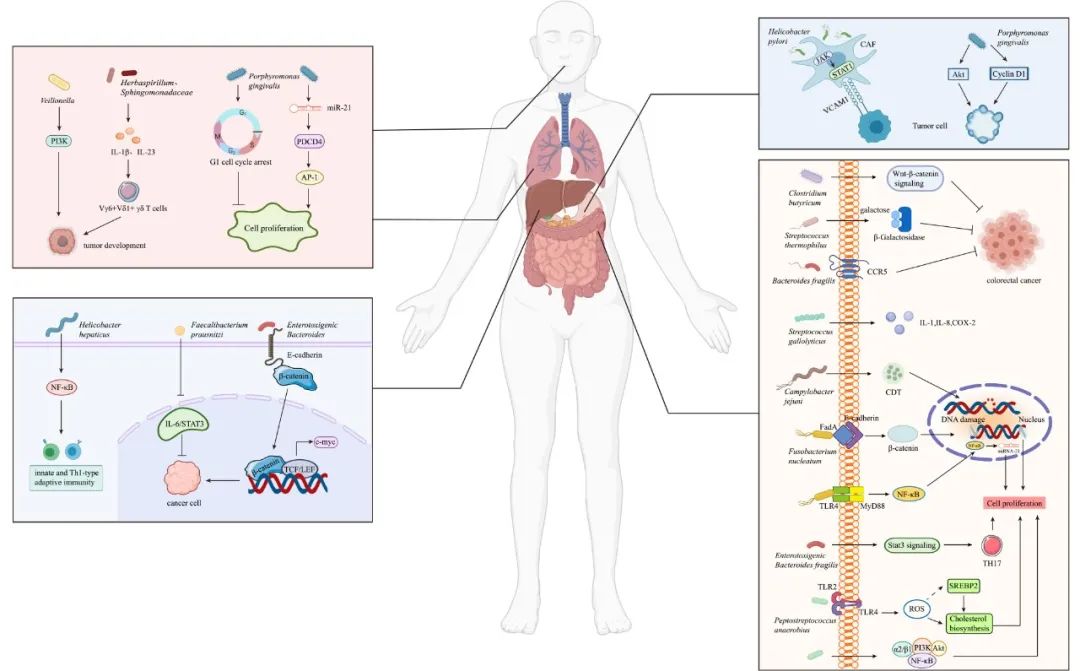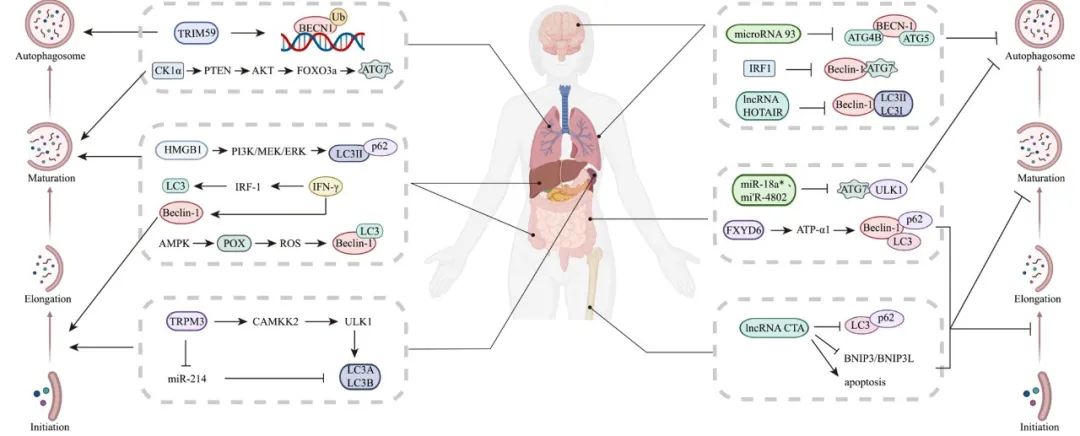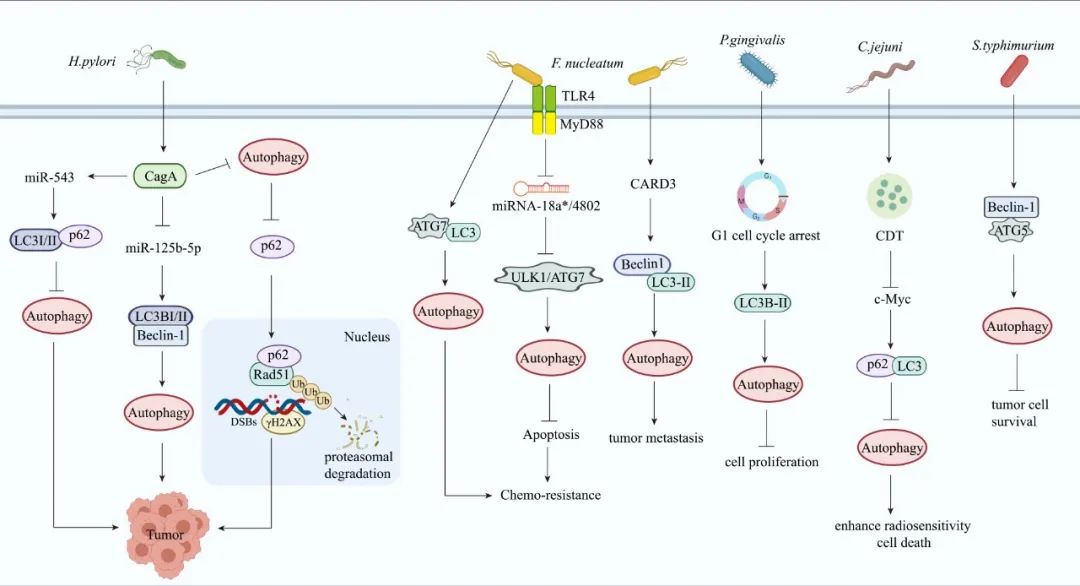2021年12月11日,天津医科大学总医院消化内科和肝病科Sinan Wang团队在Molecular Cancer上发表了题为“Crosstalk between autophagy and microbiota in cancer progression”的综述性论文。在本文中,团队主要强调了自噬在病原微生物与人类癌症相互作用过程中的主导作用,并研究了自噬调节这种复杂生物过程的各种分子机制。此外,还强调了使用针对微生物群/自噬轴的多种分子药物治疗癌症的可能性。最后,总结了新兴的临床试验,这些试验研究了将自噬或微生物群作为抗癌策略的治疗潜力。
许多研究表明,自噬作为一种细胞死亡机制,在细胞死亡、感染、心脏病、神经退行性疾病、自身免疫性疾病和癌症等多种疾病过程中发挥着重要的病理生理作用。自噬可根据机制分为普通(非选择性)型或选择型,普通自噬涉及将细胞质部分包装到自噬体中,并将这些货物运送到溶酶体进行降解;相反,当识别特定目标(例如蛋白质聚集体、受损细胞器和细胞内病原体)时,选择性自噬就会被激活。
众所周知,遗传和环境因素对癌症的发生和发展至关重要,但最近的研究表明,微生物也是必不可少的,胃癌、卵巢癌、胰腺癌、前列腺癌、肺癌、乳腺癌以及胆管癌都被发现与微生物感染有关。微生物和微生物群通过增强或降低宿主风险而促进致癌的方式分为三大类:(1)改变宿主细胞增殖和死亡的平衡;(2)调控免疫系统;(3)影响宿主产生的因子、摄入的食物和药物的代谢。因此,靶向微生物的小分子药物成为抗肿瘤治疗背景下的研究热点,且某些影响肿瘤对其他治疗策略反应的微生物可用于治疗癌症,简称“用微生物治疗微生物”。除了各自在病理和生理条件下的功能外,自噬和微生物群之间的相互作用在肿瘤发生和对化疗药物的耐药性中也至关重要。
在这篇综述中,团队分别描述了微生物群和自噬在肿瘤中的关键作用及其在肿瘤进展中的特点(图1、图2)。此外,本综述还分析了不同细菌调控的自噬对肿瘤生物学行为的影响和机制,以及自噬对微生物群致癌作用的影响,强调了自噬在微生物相互作用中的主导作用(图3)。并且,本文还总结了多种药物,且通过调研其临床试验或动物实验,评估靶向微生物群/自噬轴作为抗癌策略的治疗潜力。
图1 细菌调节肿瘤进展的机制示意图。
图2 不同蛋白质或小分子调节自噬途径示意图。
Crosstalk between autophagy and microbiota in cancer progression
Autophagy is a highly conserved catabolic process seen in eukaryotes and is essentially a lysosome-dependent protein degradation pathway. The dysregulation of autophagy is often associated with the pathogenesis of numerous types of cancers, and can not only promote the survival of cancer but also trigger the tumor cell death. During cancer development, the microbial community might predispose cells to tumorigenesis by promoting mucosal inflammation, causing systemic disorders, and may also regulate the immune response to cancer. The complex relationship between autophagy and microorganisms can protect the body by activating the immune system. In addition, autophagy and microorganisms can crosstalk with each other in multifaceted ways to influence various physiological and pathological responses involved in cancer progression. Various molecular mechanisms, correlating the microbiota disorders and autophagy activation, control the outcomes of protumor or antitumor responses, which depend on the cancer type, tumor microenvironment and disease stage. In this review, we mainly emphasize the leading role of autophagy during the interaction between pathogenic microorganisms and human cancers and investigate the various molecular mechanisms by which autophagy modulates such complicated biological processes. Moreover, we also highlight the possibility of curing cancers with multiple molecular agents targeting the microbiota/autophagy axis. Finally, we summarize the emerging clinical trials investigating the therapeutic potential of targeting either autophagy or microbiota as anticancer strategies, although the crosstalk between them has not been explored thoroughly.
关键词:Autophagy, Microbiota, Cancer progression, Target therapy




